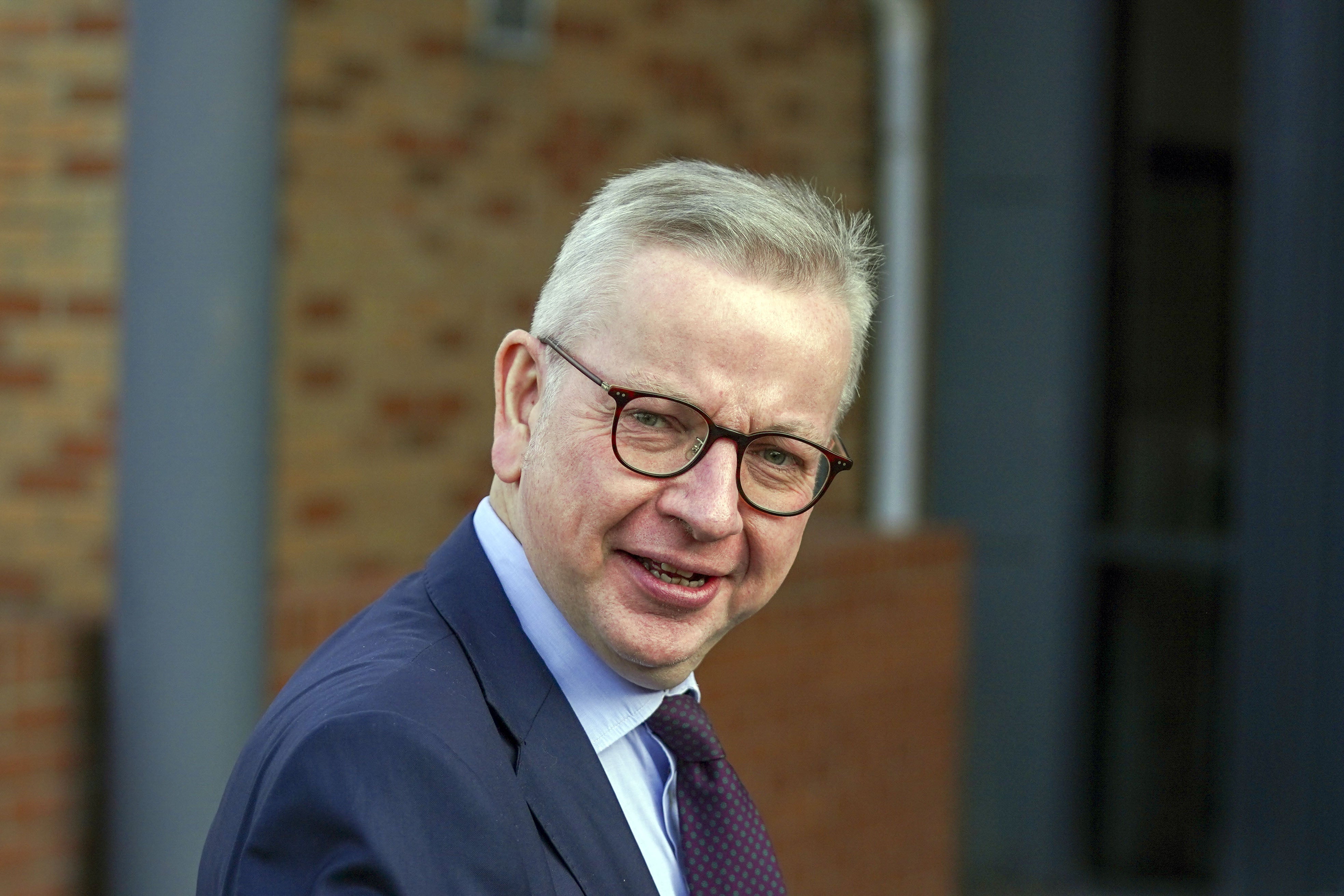Creation of governors for English counties could herald radical change
Michael Gove’s plans for devolution deals will move powers to regions, writes Andrew Woodcock


Plans for US-style governors for English counties could radically transform the UK’s highly centralised form of government, an expert has told The Independent.
The proposal is understood to be at the heart of Michael Gove’s delayed white paper on the government’s “levelling up” agenda, initially promised before the end of 2021 but now expected to be released early in the new year.
Inspired by the success of Tory mayors like Ben Houchen in Tees Valley and Andy Street in the West Midlands, Mr Gove is understood to want to extend and deepen devolution in England by establishing directly elected posts to represent regions across the country, each covering a number of local authority areas.
Because the title “mayor” is strongly identified with cities and towns, rural counties could be asked to elect “governors” instead.
Mr Gove’s Department for Levelling Up refused to discuss details of the new posts, including the powers they may wield and the areas they would oversee.
But it is thought that the aim would be to simplify local government structures which currently see town, district, borough, county, metropolitan and unitary councils deployed in differing arrangements of layers in different parts of England, with some also having directly elected mayors running “combined authorities” like Greater Manchester or the Liverpool City Region.
Existing councils have not so far been abolished on the creation of combined authorities, but it is thought that the “devolution deals” likely be offered by Mr Gove could include a streamlining of current structures to make local government more uniform across England and easier for voters to understand.
There is no question of English governors being given the same powers as their US namesakes, who act as heads of governments of states with the ability to implement their own laws and raise taxes.
But the London School of Economics professor of government Tony Travers said that they could nonetheless exert considerable influence, both because of the personal mandate they would possess and the media attention they would command.
“There is no doubt that elected mayors have shown that they can be very effective lobbyists for their areas, whether you look at Ben Houchen’s record of getting government money and company investment into Tees Valley, or you look at the national profile of Andy Burnham in Greater Manchester or Sadiq Khan in London,” he told The Independent.
“If there were 50 or so mayors and governors across England, they would be quite a powerful constitutional counterbalance to the parliament in Westminster. It would be a radical change to the way the country is governed.”
By international standards, the UK is highly centralised both in the concentration of decision-making and tax-raising powers in London, explained Prof Travers.
And he said that the success of any English devolution deal would depend on the centre’s willingness to hand over real power to directly elected regional leaders.
Mayors like Burnham and Steve Rotheram in the Liverpool City Region have long argued that wider responsibilities and greater funding flexibility would enable them to deliver better outcomes for their areas than ministers in distant Whitehall could achieve.
“The big question is whether Whitehall is willing to part with any of its power, which it has so far guarded very jealously,” said Prof Travers. “Once you create real power in the English regions, you are reducing the scale and power of Whitehall.”
When he created England’s first directly elected mayor in London in 2000, Tony Blair famously hoped that the role would attract big-hitters from outside the world of politics, like successful businessmen and entrepreneurs.
Despite the extension of mayoralties to many other cities and towns, non-politicians such as former John Lewis retail executive Mr Street in the West Midlands or police chief Ray Mallon in Middlesbrough – not to mention football mascot Stuart Drummond in Hartlepool – have been few and far between.
And Prof Travers said it was likely that an extension of devolution would in fact have the effect of drawing aspiring politicians away from Westminster.
“If you look at someone like Ben Houchen or Andy Burnham, they are much more visible and much more able to command the media spotlight than local MPs,” he said. “If they are given real powers, that would be a more attractive proposition for lots of people who are ambitious in politics than standing for parliament to become one of hundreds of backbenchers. And that would change the way Westminster works.”
England currently has directly elected mayors of combined authorities in London, Greater Manchester, the Liverpool City Region, Tees Valley, the West Midlands, South Yorkshire, West Yorkshire, North of Tyne, West of England and Cambridgeshire & Peterborough.
Single-council directly elected mayors are in place in Bedford, Bristol, Copeland, Doncaster, Hackney, Leicester, Lewisham, Liverpool, Mansfield, Middlesbrough, Newham, North Tyneside, Salford, Tower Hamlets and Watford, but have been dropped in Hartlepool, Stoke and Torbay.
It is thought unlikely that Mr Gove would make mayors and governors mandatory across England, though he is likely to offer greater devolution of powers to areas which accept them.






Join our commenting forum
Join thought-provoking conversations, follow other Independent readers and see their replies
Comments